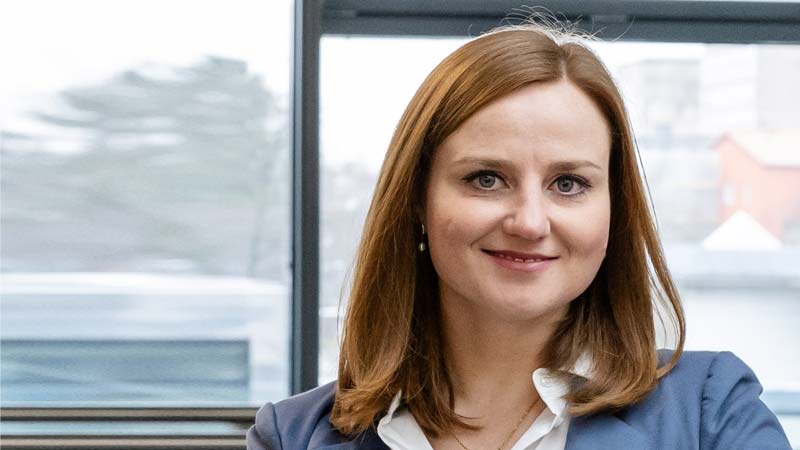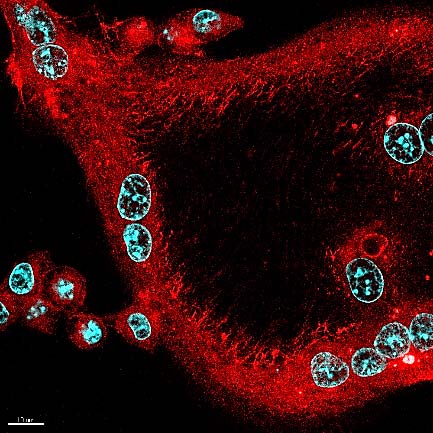Darja Andreev Group
Resolution of Inflammation and Tissue Regeneration

The immune system is the human body's defense mechanism. It protects us from foreign substances and pathogens including helminths, bacteria and viruses. However, various genetic, epigenetic, and environmental factors can cause the immune system to malfunction, resulting in autoimmune diseases such as rheumatoid arthritis and inflammatory bowel disease, or hypersensitivity reactions such as allergic asthma. These chronic conditions require patients to continuously adjust their medication and remain on it for a lifetime, posing significant health and economic burdens to both patients and society. Our research focuses on investigating potential cellular and molecular signaling pathways that lead to misguided immune responses and using this knowledge to promote the resolution of chronic diseases and restore tissue homeostasis.
Another important aspect of our research is the investigation of cellular and molecular mechanisms that counteract pathological bone turnover as it is the case in postmenopausal osteoporosis and rheumatoid arthritis. Here we focus on the crosstalk between innate immune cells and bone cells including bone resorbing osteoclasts, bone forming osteoblasts and bone-resident osteocytes.
At TUD, we are committed to staying at the forefront of scientific research by consistently investing in novel imaging and omics technologies. I offer compelling research topics for driven and enthusiastic PhD candidates who are eager to tackle pivotal questions in immunology.
Role of heme peroxidases as pro-resolving agents in inflammatory arthritis
The objective of this project is to uncover a novel immune regulatory function of heme peroxidases in rheumatoid arthritis. These peroxidases are produced in high amounts by granulocytes and can be found in arthritic joints. Traditionally, their role has been to generate reactive oxygen species (ROS) as a defense mechanism against invading pathogens. However, recent research suggests that heme peroxidases have a much more intricate role in the immune system, possessing not only proinflammatory properties but also various immune-modulatory effects.
The main focus of this project is to investigate how heme peroxidases may promote the transition of classical proinflammatory macrophages to alternatively activated macrophages with anti-inflammatory qualities, thereby facilitating the resolution of inflammatory arthritis.
Regulatory functions of eosinophils during pathological bone remodeling
The equilibrium between bone formation by osteoblasts and bone resorption by osteoclasts is crucial for maintaining a healthy skeletal system. However, hormonal changes as during the menopause or inflammation, such as in rheumatoid arthritis, can disrupt this balance by enhancing the development of osteoclasts, which leads to low bone mass and an increased risk of fractures. While the pro-osteoclastogenic effects of immune cells and cytokines, such as TNFα, IL-1β, IL-6 and IL-17A have been extensively studied, the immune cells and mediators that inhibit osteoclast formation are not well understood.
Type-2-immunity-related cytokines, which are secreted in high amounts by eosinophils, have been found to suppress osteoclast differentiation and function. However, the regulatory role of eosinophils in bone health has been largely overlooked. Therefore, the objective of this project is to enhance or comprehension of how eosinophils regulate pathological bone decline as observed in postmenopausal osteoporosis and inflammatory arthritis and identify novel therapeutic approaches for these conditions.
Future Projects and Goals
- Exploring the cellular and molecular processes underlying immune system dysregulation, leading to autoimmune disorders like rheumatoid arthritis and inflammatory bowel disease, as well as hypersensitivity reactions such as allergic asthma.
- Exploring the role of eosinophils beyond tissue inflammation, delving into their regulatory functions within the body.
- Understanding the mechanisms behind bone deterioration linked to damage and aging, with a specific emphasis on the interplay between immune cells and bone cells, notably osteoclasts responsible for bone resorption.
Methodological and Technical Expertise
- Omics-technologies (single cell RNA sequencing, bulk RNA sequencing, proteomics)
- Imaging (light-sheet fluorescence microscopy, confocal microscopy, transmission electron microscopy, micro-computed tomography, immunofluorescence, histomorphometry)
- Cell metabolism analyses (extracellular flux assays, SCENITH technology)
- Flow cytometry and fluorescence activated cell sorting
- Immunological methods (real-time quantitative PCR, ELISA, Western blot)
- Implementation of autoimmune mouse models
- Cell culture (murine und human osteoclast and macrophage primary culture, osteoblast and osteocyte cell lines)
- CRISPR/Cas9 gene editing of monocyte-derived primary cells
